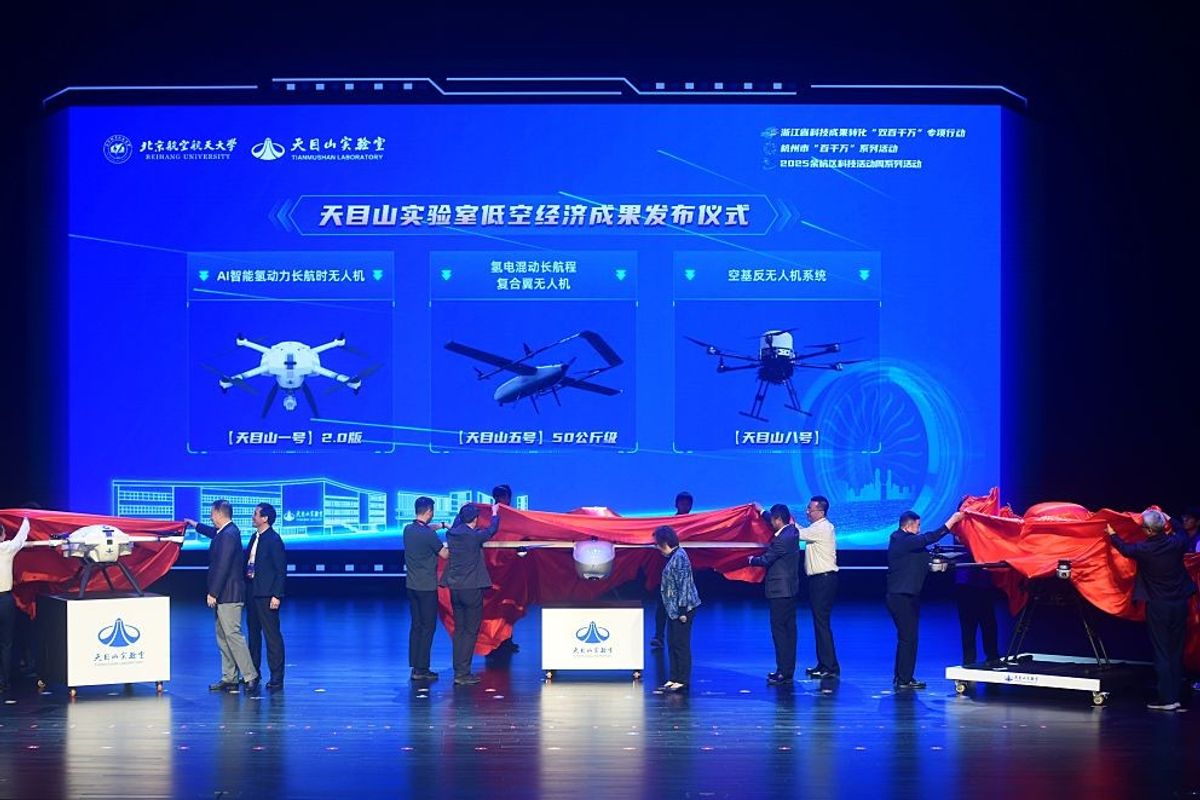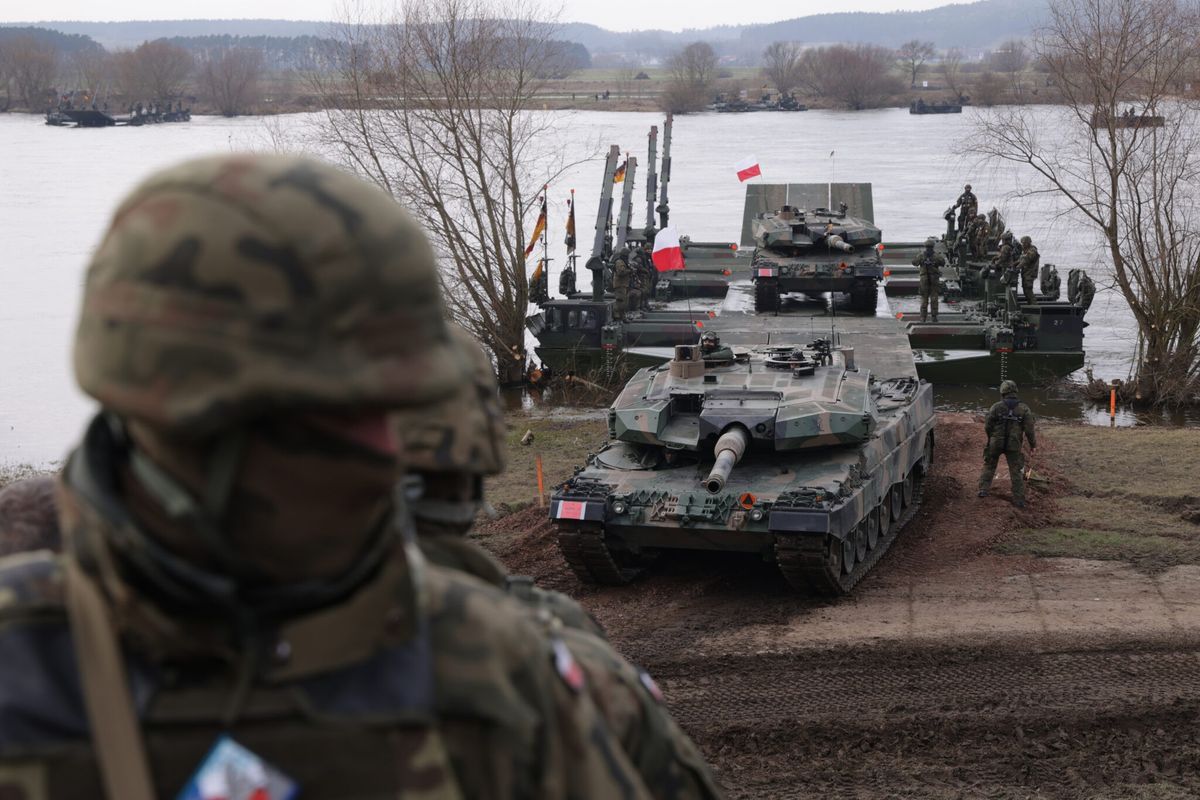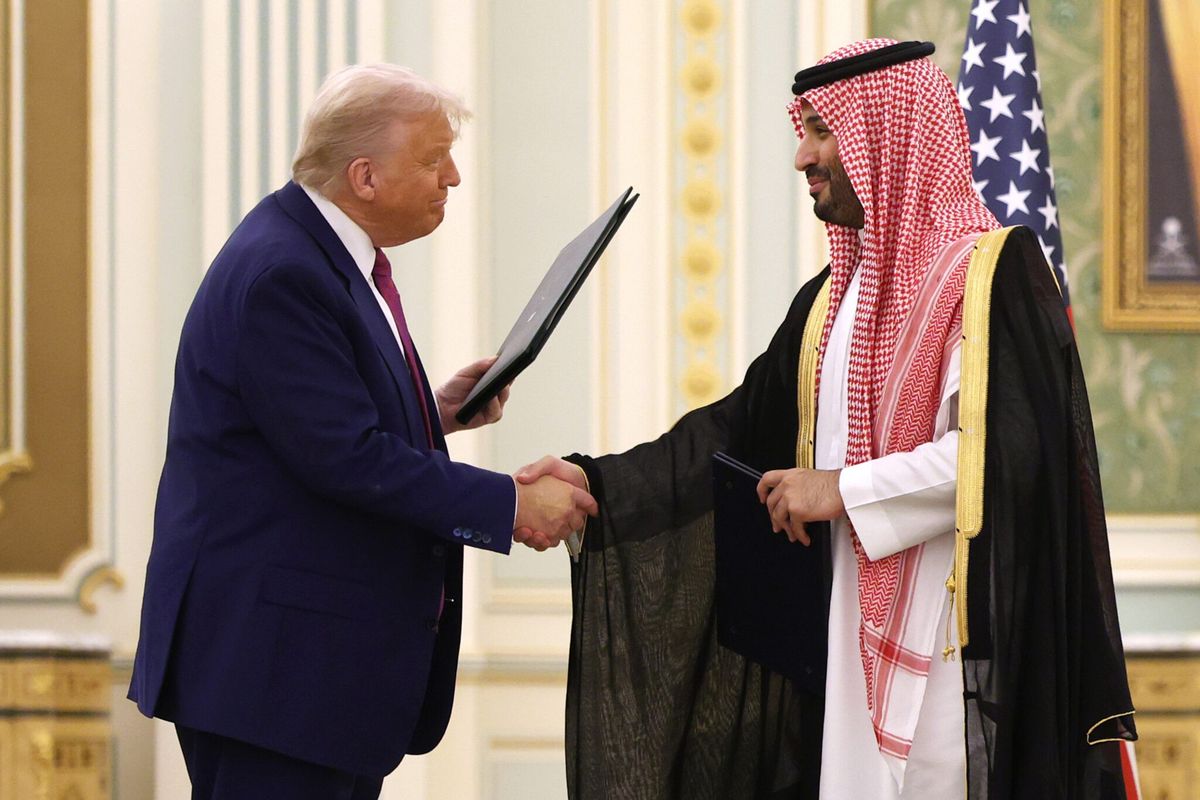EXCLUSIVE INTERVIEW – CIA Director William Burns warned Monday of “the very real danger” of a wider war in the Middle East, and urged Israel and its adversaries to pursue “smart diplomacy” to halt the conflicts in Lebanon and Gaza.
“Now we face the very real danger of a further regional escalation of conflict,” Burns told The Cipher Brief annual Threat Conference in Sea Island, Georgia.
While the CIA Director credited Israel for “very significant tactical successes” against Hezbollah in Lebanon over the past two weeks, he urged Israeli leaders “to translate those tactical successes into an effective strategy that marries the use of force…with good intelligence and ultimately smart diplomacy to try to produce a ceasefire.”
Burns called on leaders in the region “to recognize that enough is enough, that perfect is rarely on the menu, especially in the Middle East. And then you've got to make some hard choices and some compromises in the interests of a longer-term strategic stability.”
Speaking on the one-year anniversary of the Hamas attacks against Southern Israel, Burns highlighted the horrors that have been visited on both sides – what he called the “human stakes” faced by the Israeli victims and hostages and their families, and the dead and wounded civilians and their families in Gaza.
In an hour-long conversation with Cipher Brief CEO Suzanne Kelly, Burns also spoke of “enormous challenges ahead for Ukraine” and warned of American “attention deficit disorder” in terms of the war and support for Ukraine.
Asked about the Russian nuclear arsenal and President Vladimir Putin’s threats to use those weapons, Burns said “we can’t take that lightly…but you have to be careful not to be unnecessarily intimidated” by Putin’s nuclear “saber rattling.”
Burns also said the agency had succeeded in recent efforts to recruit disaffected Russians to spy for the U.S.
“Business is pretty good,” Burns said. “We’re seeing results.”
In a conversation dominated by the wars in Ukraine and the Middle East, Burns said the focus on those conflicts had done nothing to diminish other CIA priorities – highlighting a number of “long-range challenges,” including threats posed by China, and various terrorism threats around the world.
“It certainly hasn’t been dull,” Burns said.
Below are excerpts from the interview.
The Cipher Brief: You’ve spent the bulk of your career as a diplomat, but could you give us some overall reflections on your time as director of the agency?
Burns: It's hard to believe that I've had the privilege of being CIA director for almost four years now. It certainly hasn't been dull, particularly this last year.
One of the things that I take great pride in at the agency is that over the course of this past year, which has in many ways been dominated by two conflicts, one in the Middle East and one in Ukraine, each enormously important, is that we've managed to stay focused on long-range challenges, China being the biggest geopolitical challenge.
And we put a lot of focus into counterterrorism, to which we devote considerable resources and maintain a very sharp focus, as [Al-Qaeda leader] Ayman al-Zawahiri discovered in what turned out to be a not-so-safe house in downtown Kabul a couple of years ago, and then investing in our workforce as well.
But with all of the long-range priorities, a lot of our attention and focus has been dominated by those two conflicts…in Ukraine and the Middle East.
I just got back from my 13th visit to Ukraine during the course of the war, which is I think a reflection of the priority that we attach as an agency to supporting Ukrainians against Russian aggression. And President Zelensky – for whom I have great admiration – despite all the burdens of his office, he has not lost his sense of humor. On my 10th visit, which was 5 months ago or so, he gave me a certificate, entitling me to a free upgrade on the train from Poland to Kyiv. It's a nice gesture.
There are enormous challenges ahead, as the Ukrainians understand better than anyone. I would not underestimate [Russian President Vladimir] Putin's singular fixation on controlling Ukraine and controlling its choices, but nor would I underestimate the courage and tenacity of Ukrainians so long as we continue to provide strong support.
Putin, in my experience, dealing with him over many years, always thinks Americans have attention deficit disorder, and sometimes we demonstrate that. We move on to the next challenge. This is one of those cases where we have to demonstrate the strength of our support for Ukraine because there's a lot riding on this, not just for Ukrainians, but for European security and for the basic proposition that big countries don't get to swallow up smaller countries just because they think they can.
October 7, 2023 – and the year that followed
Burns: In the Middle East, it's important to remember one year ago, when a horrific terrorist attack which slaughtered 1200 Israelis and took another 250 hostage. Over the course of the last year, I always try to remember that the issue in Gaza for Israelis, and for Palestinians, is not an abstraction. It's about human beings. It's about the hostages living in hellish conditions and tunnels beneath Khan Yunis and other parts of Gaza. It's about their families, amongst the bravest people I've ever known. It's about mothers and fathers in Gaza, the Gazan civilians who are caught in the crossfire and suffering enormously. It's about the humanitarian catastrophe that they face.
I also try to remember that what's at stake in Gaza is shaped by political will in the end. It's not just about brackets in texts or creative formulas when you're trying to negotiate a hostage and ceasefire deal. It's about leaders who ultimately have to recognize that enough is enough, that perfect is rarely on the menu, especially in the Middle East. And then you've got to make some hard choices and some compromises in the interests of a longer-term strategic stability, and in the interests of those human beings that I mentioned.
Now we face the very real danger of a further regional escalation of conflict. The challenge that we see in Lebanon today, after two weeks in which Israel has had some very significant tactical successes, is the risk of a further escalation between Iran and Israel.
And so it's really important, I think, as we try to navigate the very tense period ahead of us, to keep in mind that the bigger challenge is going to be to translate those tactical successes into an effective strategy that marries the use of force, which is really important, especially in dealing with despicable terrorist groups like Hamas and Hezbollah, but marrying it with good intelligence and ultimately smart diplomacy to try to produce a ceasefire to Israel's North, as well as what has been a very elusive ceasefire in Gaza.
The last thing I'd say is that it's important to remember when you look at a vicious terrorist group like Hamas, is that it has military capabilities which have been severely degraded by Israel over the course of the last year, but it's also a movement and an idea.
And in my experience, the only way you kill an idea is with a better idea, with not only security for Israelis, but a sense of hope for Palestinians as well.
The Cipher Brief: What are the things that you worry about the most that might push Iran and Israel in that direction, towards a wider war?
Burns: Misjudgments that people oftentimes, leaders oftentimes make in the Middle East. The “stuff happens” category, where what people think is a precise targeted military action ends up producing lots of casualties. The Middle East is a place where complicated stuff happens all the time. It's a place where pessimists always feel right at home. So you can see the potential for inadvertent collisions, misunderstandings, actions that take on a life of their own.
Putin and the nuclear threat
The Cipher Brief: We are here in Sea Island, which was also the location where President Bush attended a G8 summit in 2004, and there was a beautiful picture taken on the beach from that. Vladimir Putin was here. I want to ask: What happened to Vladimir Putin?
Burns: I have found Putin, over the 20 or 25 years that I've had interactions with him, to have a fixation on Ukraine, on controlling it and its choices. From my perspective, Vladimir Putin has been unable to see Russia as a great power unless it controls Ukraine. He's been unable to see himself as a great Russian leader without achieving that, and so he's had a determination on that issue, which didn't necessarily have to unfold in exactly the way it did in February of 2022, but I think it reflected that absolute and often ruthless determination on his part. He saw that as his window, his strategic opportunity.
He thought that European leaders were distracted for a whole variety of reasons. He really believes, and I've heard him say this a number of times, that Ukraine's not a real country. And I think he was convinced that the Ukrainian leadership would just roll over in the path of a Russian military, which he believed he had modernized to the point where it could take on that challenge easily. He thought he had sanctions-proofed the Russian economy by that point, and he was wrong on all of those things.
The Ukrainians responded with a fierce determination and remarkable courage. [President Zelensky] provided an inspiration to Ukrainians at that point that few other leaders I've ever known in the course of the nearly 40 years I've been in public service have ever provided. He still has a huge challenge ahead of him, but hence the importance of us continuing to provide all the support we can.
The Cipher Brief: As determined as President Zelensky is to defend and protect his country, you also mentioned that Vladimir Putin is determined to take back Ukraine and make it part of Russia. Is he determined enough to use a nuclear weapon?
Burns: He saber rattles a lot. Russia is the only other nuclear power in the world today, at least comparable to the United States. So we can't take that lightly. On the other hand, I think we have to be really careful not to be unnecessarily intimidated by that, too, because I think Putin has a very healthy regard for what it would mean, not just to use a nuclear weapon and the consequences of that, but also the consequences of taking on a NATO country as well.
So it's part of our job to carefully assess that particular risk, but we have to also be very careful not to be unnecessarily intimidated by it.
The Cipher Brief: How would you characterize the relationship between China and Russia today?
Burns: It would be a huge mistake for us at CIA and the U.S. government to underestimate the strength of the partnership right now, the personal relationship between Xi Jinping and Vladimir Putin, and their sense of shared determination to undermine an international order that the United States has played a very large role in helping to shape.
I think China has done more than anyone else to help Putin rebuild his defense industrial base over the last 18 months. Not, as far as we can assess now, crossing a line with the direct provision of weapons and munitions to Russia for use in the war in Ukraine, but everything short of that in terms of microelectronics, in terms of dual-use items as well, which have been crucial to Putin's success so far, at least in rebuilding his defense industrial base.
People will rightly point out that there's historical mistrust between Chinese and Russians. Russians chafed at being seen as the junior partner of the United States right after the end of the Cold War. And Russians are also eventually going to chafe at being China's junior partner. But in the meantime, I would not underestimate the strategic bond that joins them together right now.
The Cipher Brief: Some of the ways that the agency has been recruiting have been pretty innovative. We ran a story recently about how you're trying to recruit Russians to cooperate with the CIA, using social media. How's that going?
Burns: It's going pretty well actually. This really is, in the last three years or so, a once-in-a-generation opportunity to recruit Russians, in the sense that there has been a fair amount of disaffection with Putin's conduct of the war. And so we're taking full advantage of it. We really are “open for business." And I would add that business is pretty good.
The Cipher Brief: We've talked about Iran, we've talked about Russia, we've talked about China. How seriously are you taking the threat of North Korea, and especially this new alliance that we're seeing?
Diplomacy v. "the spy thing"
Burns: On North Korea, I think one of the more troubling developments has been the strengthening of the defense partnership between North Korea and Russia, with the North Koreans supplying significant quantities of artillery munitions for Russia, desperately needed by the Russians on the battlefield. Short-range ballistic missiles as well. And of course the challenge is, this is a two-way street, because the North Koreans benefit as well from this, something we watch very carefully.
The Cipher Brief: One of your predecessors, General David Petraeus, was here with us yesterday, and he said that when he became director of the CIA, he thought he knew some stuff before, but that his eyes were opened to the threats that he just really hadn't been tracking in the same way. Did you have a similar experience?
Burns: I did. I'd spent three and a half decades as a career diplomat. I served very closely with CIA friends and officers, especially serving overseas too. So I thought I knew the agency, but it's a lot different than when you're actually a part of it.
I learn something new every day, that's for sure. But that's a large part of why I love the job so much. It's my curiosity in learning new things, but it's also just the pride I take in working with such a remarkable group of women and men.
The Cipher Brief: You've done the diplomat thing, and now you've done the spy thing, which is more fun?
Burns: What I do now. I say that with great affection for my old institution and my old profession, but as I said, I genuinely love this job.
Read more expert-driven national security insights, perspective and analysis in The Cipher Brief.














